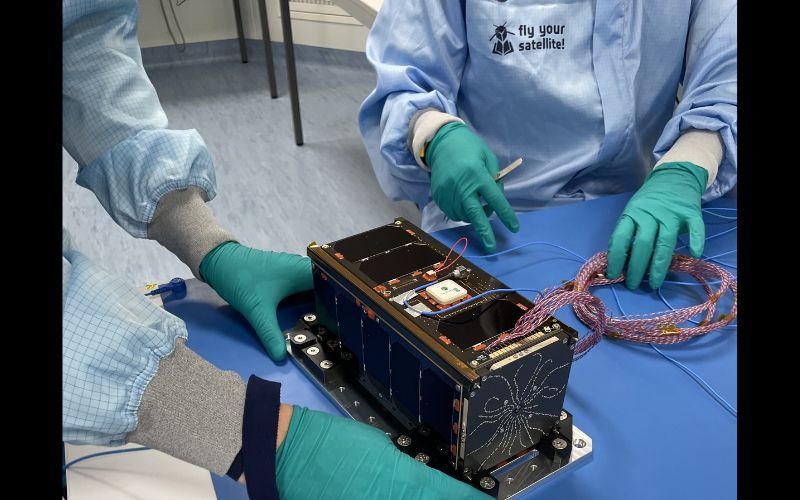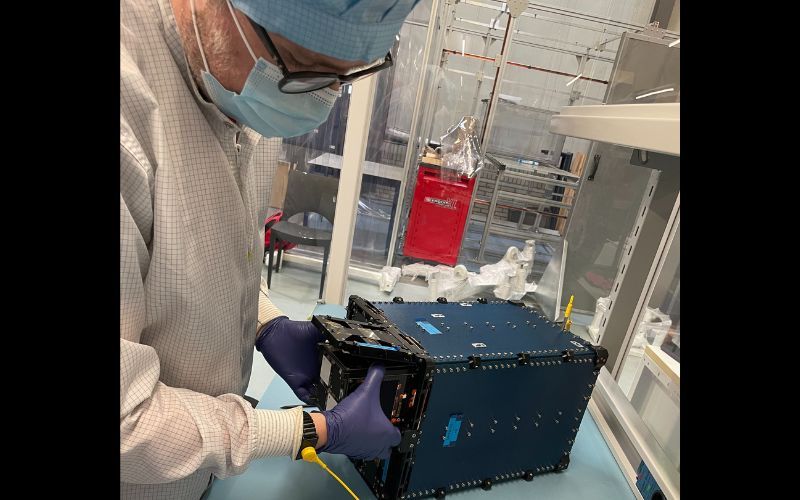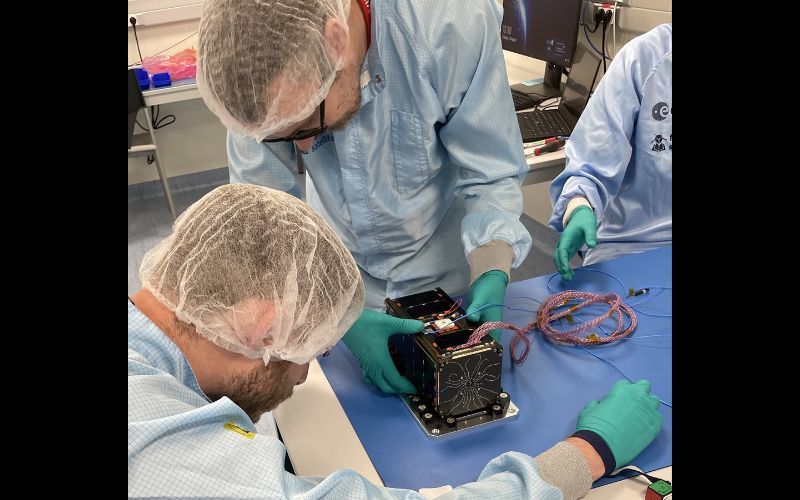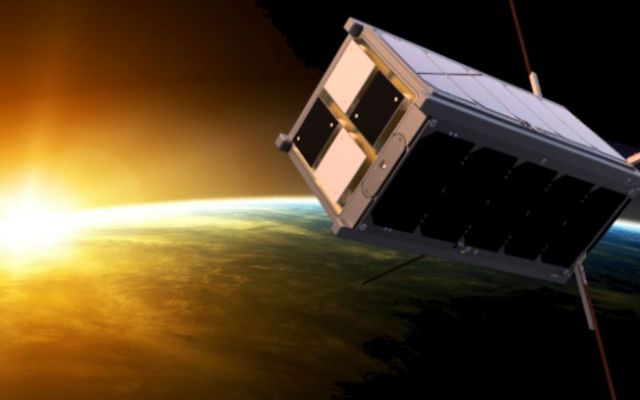EIRSAT-1, Ireland’s first-ever satellite, has left Irish shores for the last time as preparations begin ahead of a planned launch this month from California.
The Irish satellite, which was designed, built, and tested at University College Dublin, is heading to the Vandenberg Space Force Base in California where it will be sent into orbit on November 29 on a Space X Falcon 9 rocket.
EIRSAT-1 Launch Update!! ?
Ireland’s first satellite @EIRSAT1 is going to be launching towards the end of November!
We will be posting updates here for the coming weeks so stay tuned ??#launch #cubesat #irelandsfirstsatellite pic.twitter.com/ESAOFFMYs2
— EIRSAT-1 (@EIRSAT1) November 7, 2023
UCD said in a statement today, November 7, that EIRSAT-1 is a flagship project of UCD C-Space, the UCD Centre for Space Research, the UCD School of Physics, and UCD School of Mechanical and Materials Engineering.
In particular, EIRSAT-1 is a part of the ESA Academy’s ‘Fly Your Satellite!’ initiative, which offers university students the training, space-expert mentoring, and hands-on guidance throughout the entire life cycle of a professional satellite project; from design to building, tests, launch, and operations.
ESA also provided the launch opportunity now coming up, UCD said.
We're thrilled to announce that Ireland's first ever satellite, @EIRSAT1, is set to launch in November! ?✨
? Built by students from the University College Dublin @ucddublin @UCD_Cspace as part of ESA Fly Your Satellite! programme, the CubeSat will perform different… pic.twitter.com/M6sL7W8MDk
— ESA Education (@ESA__Education) November 7, 2023
A miniature cube satellite, or cubesat, EIRSAT-1 was first announced in and then selected by ESA for Fly Your Satellite! in 2017.
Its development at UCD has seen the introduction of space systems engineering and skills that have not previously existed in Irish industry or academia.
Professor Lorraine Hanlon, Director of EIRSAT-1 and the UCD Centre for Space Research, said: “Ireland has never had a satellite before and we are tremendously excited to reach this delivery milestone which is a tribute to the hard work of the team, and the support of the university, the Irish government and Irish industry.”

Working on EIRSAT-1. (University College Dublin)
An educational research satellite, EIRSAT-1’s six-year development has provided training for students in all major aspects of satellite development – a shared education objective by both UCD and ESA.
For its November launch, it will carry three experiments into Low Earth Orbit and will report data back to a command centre at UCD.
Alongside an experiment to detect gamma rays, the satellite's other payload includes a novel attitude control system designed by the Dynamics and Control Group in the UCD School of Mechanical and Materials Engineering, as well as in-orbit demonstration of a protective coating technology developed in Ireland by UCD and Enbio Ltd.

Working on EIRSAT-1. (Courtesy University College Dublin)
Dr. Ronan Wall, Manager Centre for Space Research, said: “This departure of the satellite from Irish shores for the last time on the first step of its journey to orbit is a big moment for the team.
"EIRSAT-1 has had thousands of hours of work poured into it and we are ready to launch and operate the spacecraft for the benefit of science, training, and education in Ireland."

Working on EIRSAT-1. (Courtesy University College Dublin)
In addition to the programmatic and educational support by the ESA Education Office, EIRSAT-1 has received funding from Science Foundation Ireland, Irish Research Council, Enterprise Ireland, UCD, Openet, and the Department of Enterprise, Trade and Employment.
The Irish European Space Education Resource Office (ESERO), a collaboration between ESA and SFI, supported the engagement of school students with inspirational and educational activities around the EIRSAT-1 project.




Comments